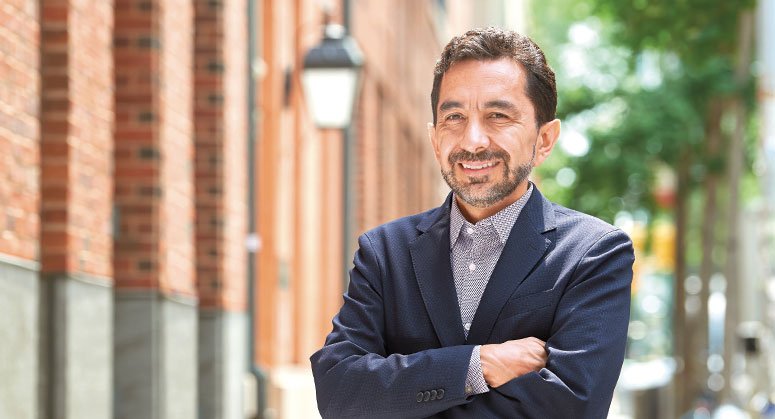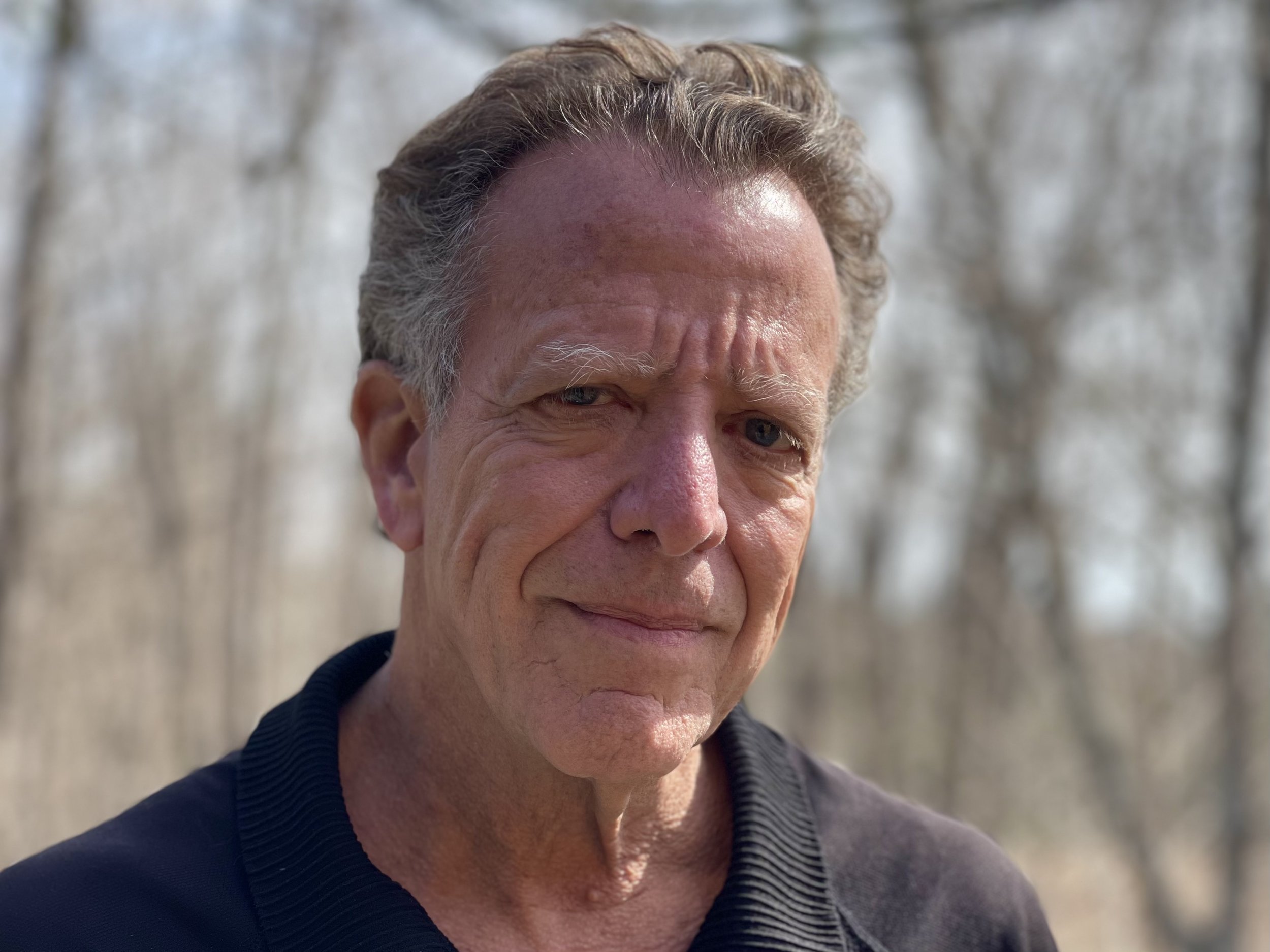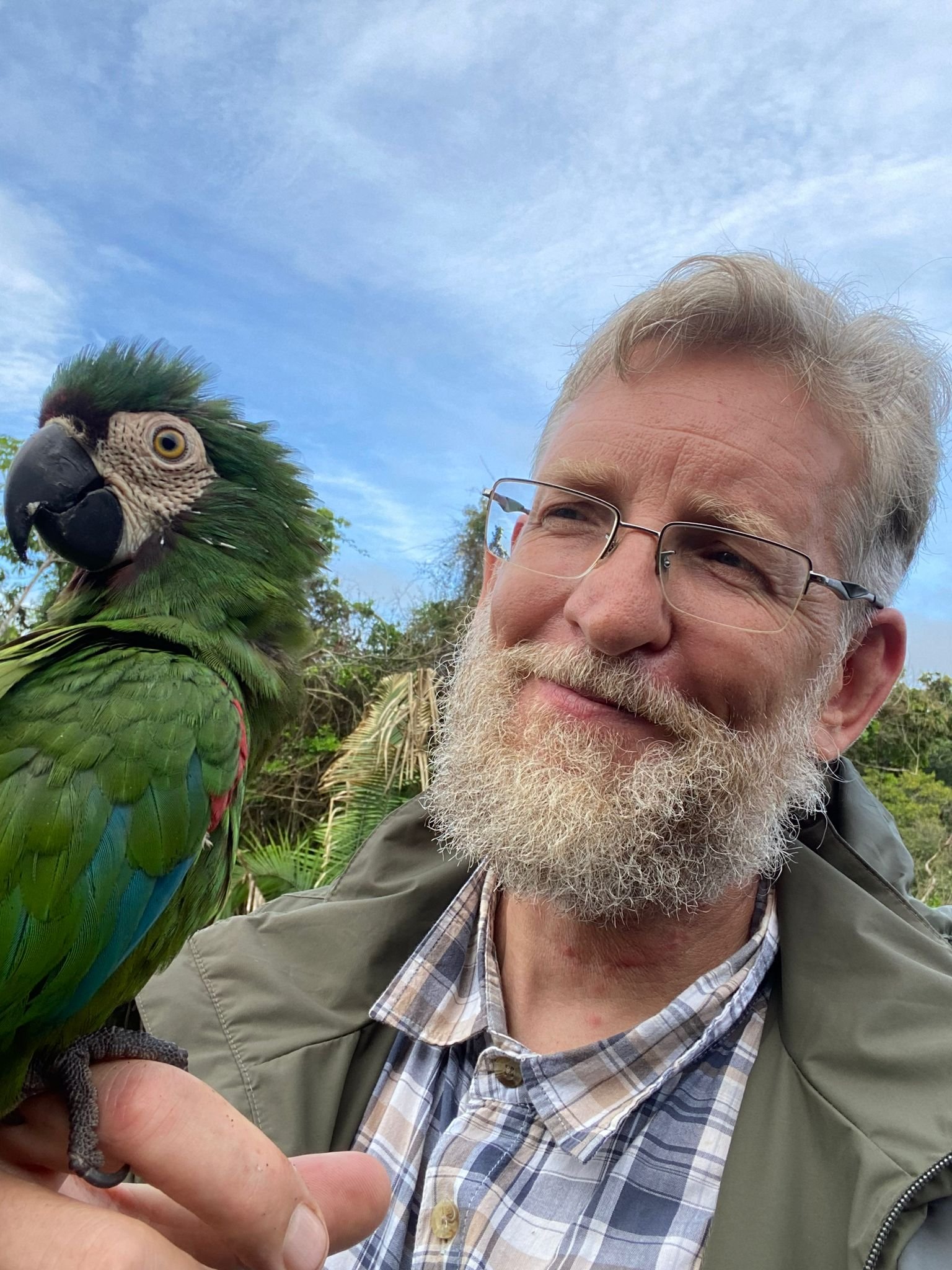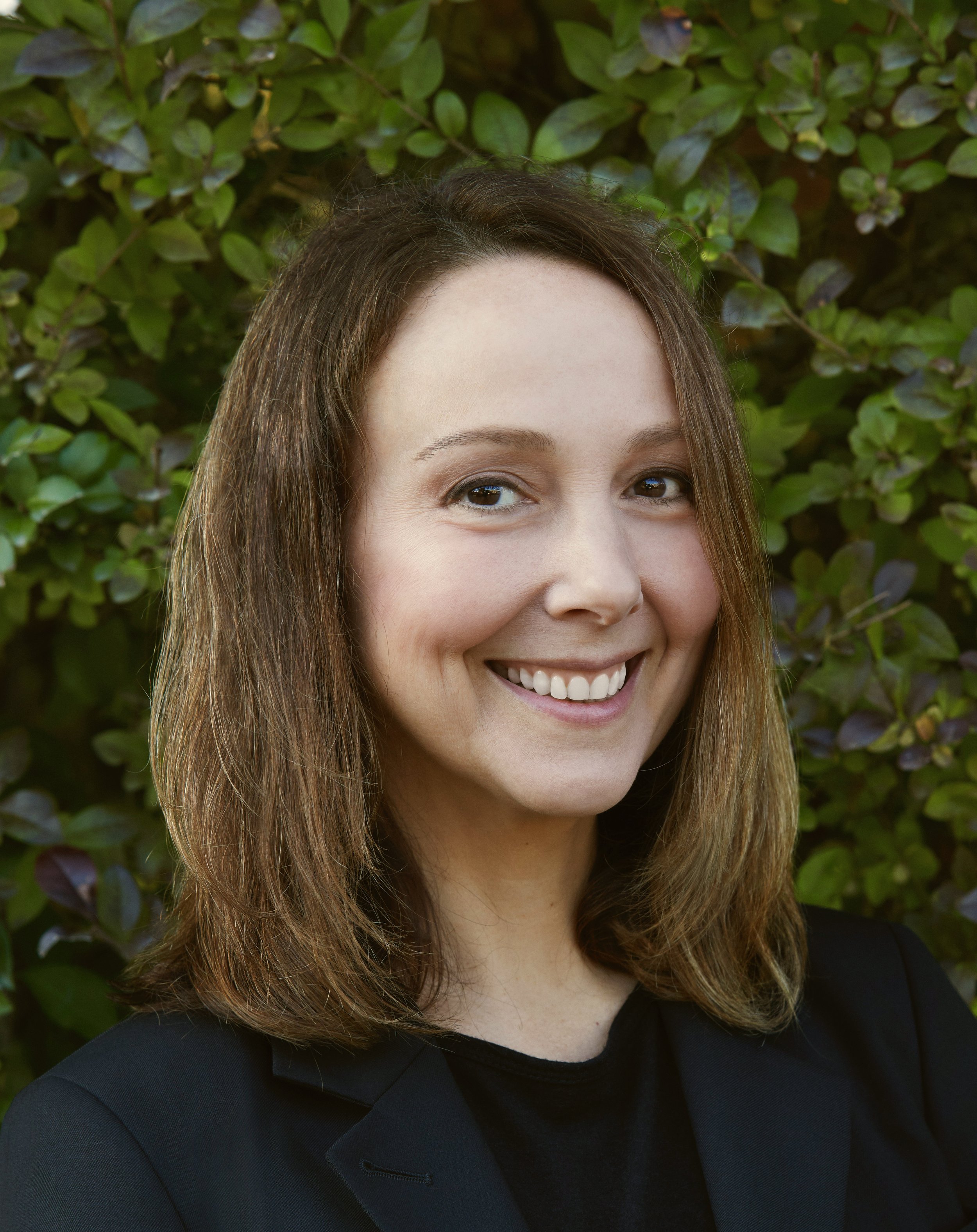speakers &
performers

César Rodríguez-Garavito
is Professor of Clinical Law and Chair of the Center for Human Rights and Global Justice at NYU School of Law. He is the founding director of the Earth Rights Research & Action (TERRA) Clinic, the More-Than-Human Rights (MOTH) Program, the Climate Law Accelerator, and the Future of Rights and Governance (FORGE) Program at NYU Law. Professor Rodríguez-Garavito is a field lawyer and an Earth rights and human rights scholar whose work focuses on climate change, international environmental law, Indigenous peoples' rights, and more-than-human rights.
Elisa Morgera
is the UN Special Rapporteur on Climate Change and Human Rights. She is Professor of Global Environmental Law at the University of Strathclyde, Glasgow (UK) and Adjunct Professor in International and European Union Environmental Law at the University of Eastern Finland. From 2019 to 2024, she was the director of the One Ocean Hub, a Global North/South research collaboration on human rights and the ocean, which connected natural and social scientists, legal experts, artists, and human rights holders and defenders to support fair, inclusive, and transformative decision-making. Previously, she worked with the United Nations Food and Agriculture Organization and the United Nations Development Programme in the Eastern Caribbean. In various capacities, she has advised governments and civil society in Africa, Asia, Europe, Latin America, the Caribbean, and the South Pacific.
Margaret L. Satterthwaite
is the UN Special Rapporteur on the Independence of Judges and Lawyers. Meg is Professor of Clinical Law, Faculty Director of the Robert L. Bernstein Institute for Human Rights, Faculty Director of the Center for Human Rights and Global Justice, and the Director of the Legal Empowerment and Judicial Independence Clinic at NYU School of Law. Her research interests include legal empowerment, vicarious trauma and wellbeing among human rights workers, and interdisciplinary methods in human rights. Before joining the academy, she clerked for Judge Betty Fletcher of the Ninth Circuit Court of Appeals and the judges of the International Court of Justice, and worked for a number of human rights organizations, including Amnesty International, Human Rights First, and the Commission Nationale de Verité et de Justice in Haiti. She has authored or co-authored more than a dozen human rights reports and dozens of scholarly articles and book chapters.
Stephen Duncombe
is Professor of Media and Culture at the NYU Gallatin School of Individualized Study and the Department of Media, Culture, and Communication at the NYU Steinhardt School of Culture, Education, and Human Development. He is the author, co-author, editor, and co-editor of ten books, including Æffect: The Affect and Effect of Artistic Activism; The Art of Activism; The Activism of Art; Dream: Re-Imagining Progressive Politics in an Age of Fantasy; Notes From Underground: Zines and the Politics of Underground Culture; The Activist Angler; The Bobbed Haired Bandit: Crime and Celebrity in 1920s New York; Cultural Resistance Reader; White Riot: Punk Rock and the Politics of Race; and (Open) Utopia. He has written over 50 articles and essays on the intersection of culture and politics and lectures regularly on the topic around the world. Stephen is also co-founder and Research Director of the Center for Artistic Activism, a research and training institute that helps activists to create more like artists and artists to strategize more like activists.
Johanna Chao Kreilick
is a Senior Fellow at the Center for Human Rights and Global Justice at NYU School of Law. Johanna brings over 20 years of experience launching, leading, and transforming organizations and initiatives dedicated to the public good and a healthy planet. She champions this work alongside a broad network of partners and change-makers, and draws on her expertise as a trained mediator, facilitator, and nonprofit board member. In addition to advising global nonprofits on organizational growth, strategic change, and key collaborations, she works with leaders and philanthropists at critical inflection points. Her services include strategic advice, assessment, governance, partnerships, fundraising, and facilitation. Recent partners include the More Than Human Life (MOTH) Program and the Future of Rights & Governance (FORGE) Program at New York University School of Law, SPUN.EARTH, Project CETI, and more.
Johanna also served as the President and CEO of the Union of Concerned Scientists from 2020 to 2023 where she led a major organizational transformation and 5-year strategy refresh, integrating equity with science and driving significant policy wins in climate, clean energy, and food justice. Her career began as a community organizer advocating alongside smallholder farmers, workers, and vendors globally. She holds a BA with distinction in Anthropology from Stanford University and an MPA from the Harvard Kennedy School of Government.
Cosmo Sheldrake
Cosmo is a UK-based multi-instrumentalist, producer, composer, live improviser, and field recordist. His music ranges widely from celebratory anthems to soulful elegies to riotous party numbers, to sparse electronic production, to haunting polyphonic songs that have grown out of field recordings of birds, whales, fish, frogs, and fungi, and more. Running through all his work is a belief that the living world is a noisy and musical place with the power to change how we think, feel, and imagine.
Together with his human and nonhuman collaborators, Cosmo creates music that speaks to the urgency and possibility of our times. Cosmo has toured internationally with sold-out headline shows across North America, Europe, and Japan. He has composed music for both film and theatre and, in 2015, ran a community choir in Brighton, UK.
In 2020, he released Wake Up Calls on his label Tardigrade Records, featuring tracks composed entirely from recordings of endangered British birds. In 2023, Cosmo released Wild Wet World, an EP that is an homage to the ocean. His new album, Eye to the Ear was released on April 12, 2024.
Azita Ardakani Walton
is an entrepreneur, creative strategist, and philanthropist exploring the intersections of relationality, systems change, and inner life. She founded an award-winning, impact-driven creative agency in 2010, where she spent a decade developing strategic campaigns for organizational and community engagement across issues such as the global clean water crisis, human rights, humane technology, and environmental conservation. Expanding her focus, she launched an experimental impact investment vehicle rooted in circular economic principles, investing in innovations that center sustainability, diversity, and planetary boundaries. Her studies in Biomimicry deepen her approach to systems design, drawing from nature’s intelligence to navigate the complexities of our time.
Azita is the founder of Kindred, a foundation dedicated to fostering innersectionality—the recognition that our inner worlds shape the systems we build and inhabit. Kindred convenes and resources practitioners, and creators across disciplines—law, science, art, philosophy, and community practice—to explore how deep relationality and emergent intelligence can reimagine governance, justice, and collective well-being. It works at the threshold where imagination meets structure, asking: What becomes possible when we center governance, justice, and care in the logic of kinship?
Danielle (Dany) Celermajer
is Deputy Director of the Sydney Environment Institute and lead of the Multispecies Justice project at the University of Sydney Over the last decade, she has turned her attention from uniquely intra-human injustice and human rights to injustices and violence against the more than human world and their intersection with injustice against particular groups of humans. Through the experience of living through the black summer bushfires as part of a multispecies community, she began writing about a new crime of our age, Omnicide. Her creative non-fiction book, Summertime; Reflections on a Vanishing Future (Penguin Random House, 2021) was written in recognition of the critical urgency of conveying the complex conceptual recognition of the multispecies harms of the climate catastrophe. Her latest book, co-authored with other members of the Multispecies Justice Collective is Institutionalizing Multispecies Justice, Cambridge University Press, 2025.
Jack Saul
is a psychologist and artist, and the founding director of the International Trauma Studies Program (ITSP) — a research and training institute based in New York City. He has served on the faculties of New York University School of Medicine, the New School for Social Research, and Columbia University’s Mailman School of Public Health. As a psychologist and family therapist, he has created a number of programs both in New York City and abroad for populations that have endured disaster, war, torture, and political violence, documented in his book Collective Trauma, Collective Healing, Routledge Mental Health Classic Series (2022). Dr. Saul is currently working on the public arts and conversation project entitled Moral Injuries of War about the need to have a national public reckoning on United States war-making and war culture.
Jonathan Watts
is an author and journalist based in the Amazon rainforest. He is global environment editor for The Guardian and founder of the Rainforest Journalism Fund and Sumaúma.com.
A veteran foreign correspondent previously based in Tokyo, Beijing, and Rio de Janeiro, Jonathan covered two tsunamis, three earthquakes, one cyclone, two bombings, a G8 conference, two world cups, and three Olympics and interviewed numerous state leaders. He switched to full time environmental reporting while writing the eco-travelogue, When a Billion Chinese Jump. He more recently wrote a biography of the brilliant natural scientist who conceived the Gaia Theory of the Earth as a living organism: The Many Lives of James Lovelock.
Andrew C. Revkin
is an environmental journalist, educator, and author. He has written on climate change for over thirty years, mostly for The New York Times. Andrew has held positions at National Geographic and Discover Magazine and won top awards in science journalism, along with a Guggenheim Fellowship. His published work includes The Burning Season and The Human Planet: Earth at the Dawn of the Anthropocene.
He was also the Founding Director of the Initiative on Communication and Sustainability at Columbia University's Earth Institute. Finally, Andrew is a lifelong musician and performing songwriter.
(PhD) (Pronouns: He, They, Dyl) works across the fields of education, ecology, and the arts. As such, Dyl works with several tentacles touching the world, as an Educational Sociologist, Political Ecologist, multi-media artist, theatre- and film-maker. Dyl has a transdisciplinary PhD in Environmental Education at the Environmental Learning Research Centre, Rhodes University, South Africa. He is the co-founder of the public storytelling foundation Empatheatre and works with public storytelling as a mechanism for healing, empathy, meaning-making and fostering inclusive forms of governance in complex social-ecological entanglements. Their areas of research span a wide spectrum, including transgressive social learning, public pedagogy, theatre-based Research, arts-based research, visual anthropology, legal anthropology, queer eco-pedagogy, post-humanism, new materialism, and critical African feminist approaches to co-engaged research. Dyl is most interested in the profound role of connective aesthetics, social sculpture, and 'making' as essential forms of thinking and theorizing, what he likes to call “meaning ∞ making.
Eliana Hernández-Pachón
is a writer and educator from Bogotá, Colombia. She has an M.F. A. in Creative Writing in Spanish from New York University and a Ph.D. in Hispanic Literature from Cornell University. Her book La Mata (in English, The Brush) won the National Award of Poetry in Colombia in 2020. She is the co-author of Plantas del camino, a book on weeds and healing, and edited the anthology Un florero que se rompe/A Vase that Shatters, which features short stories and poems by members of the Truth Commission of Colombia. She is part of Como un Lugar, a poetry collective that runs an independent press in Buenos Aires and organizes a Latin American poetry festival in NYC.
Genevieve Guenther
is the founding director of End Climate Silence and the author of The Language of Climate Politics: Fossil-Fuel Propaganda and How to Fight It, which Publishers Weekly calls "a revelatory study" and Bill McKibben has called "a gift to the world." Dr. Guenther advises NGOs, corporations, and policymakers on climate disinformation and communication. She also serves as Expert Reviewer for the United Nations Intergovernmental Panel on Climate Change, and she has spoken about climate change and language in The New Yorker and on CNN as well as to audiences at Duke, Columbia, and Harvard, among other universities.
Erin Robinsong
is a poet and interdisciplinary artist working with ecological imagination. She is the author of Rag Cosmology (2017) and Wet Dream (2022), both winners of the AM Klein Prize for Poetry. A PhD candidate at Concordia University (Montreal), Erin’s research-creation work focuses on regenerative, relational, and embodied poetics. Her performances include Zone of Exaggerated Dreaming, a solo work set in the abyssal ocean, and collaborative works with Andréa de Keijzer and Hanna Sybille Müller, including This ritual is not an accident; Facing away from that which is coming; and Polymorphic Microbe Bodies. Erin grew up in Coast Salish territory, on Cortes Island, Canada.















